Job Opportunities in United States
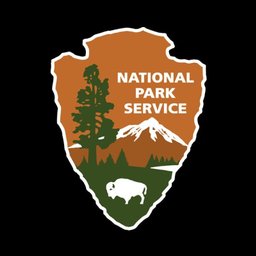
September 13, 2024
US National Park Service
Boise
OTHER & FULL TIME & PART TIME
Supervisory Program Lead (Operations) - Direct Hiring Authority
Duties
- The incumbent of this position provides program management for the operations component of the Wildland Fire branch office.
- The incumbent is responsible for providing both short and long-term planning, program coordination and leadership, development of policy, and supervision and oversight of the following programs: wildland fire safety; wildland fire fleet, facilities, and equipment; qualifications and training, operations and medical standards.
- The incumbent also serves as a supervisor for the operations program teams. Manages all the contributory operations responsibilities and duties for the Branch of Wildland Fire with focus provided for associated operations program planning and budget, wildland fire operations, safety, fleet, facilities, equipment, and training and qualifications.
- Provides wildland fire operations related programmatic leadership for the NPS. Serves as, or delegates, the role of national duty officer for wildland fire.
Requirements
Conditions of Employment
- U.S. Citizenship required.
- Appointment subject to background investigation and favorable adjudication.
- Meet Selective Service Registration Act requirement for males.
- Selectee will be required to participate in the Direct Deposit Electronics Funds Transfer Program.
- You will be required to submit to a drug test and receive a negative drug test result prior to appointment. In addition, this position is subject to random testing for illegal drug use.
- You may be required to complete training and operate a four-wheel drive vehicle.
- Work may require travel by fixed-wing or rotorwing aircraft.
- You will be required to wear a uniform and comply with the National Park Service uniform standards. A uniform allowance will be provided.
- You may be required to work on-call, evenings, weekends, holidays, overtime and shift work.
- If you are a new employee or supervisor in the Federal government, you will be required to complete a one-year probationary period.
- Subject to frequent extended travel up to 14 nights per month particularly during fire season, and you must obtain a government charge card for travel.
- You may be required to complete training and obtain/maintain a government charge card with travel and/or purchase authority.
Qualifications
Credit will be given for all appropriate qualifying experience. To receive credit for experience, your resume MUST clearly indicate the nature of the duties and responsibilities for each position, starting and ending dates of employment (month/year), and the resume must reflect full and/or part-time or total number of hours worked (i.e., work 40+ hours a week, rather than indicating full-time). If part-time, the hours must be annotated to be able to pro-rate the amount qualified specialized experience.
For periods of time that reflect military service, the DD-214 or Statement of Service is sufficient to meet the full and/or part-time hours requirement as the service dates will be reflected.
To qualify for the GS-0401-14 Supervisory Program Lead, Operations position, you must meet all of the following requirements by the closing date of this announcement to be considered:
Education: Basic Requirements
1. Degree: Biological Sciences, Agriculture, Natural Resource Management, Chemistry, or related disciplines appropriate to the position.
NOTE: The following additional subject fields have been determined to be acceptable as directly related degree programs for fire management jobs in this series: wildland fire management, forestry agronomy, biochemistry, biometrics, ecology, fishery biology, general fish and wildlife administration, horticulture, natural resources management, physiology, plant physiology, rangeland management, soil science, wildlife biology, zoology, agricultural extension, animal science, botany, entomology, genetics, microbiology, pharmacology, plant pathology, plant protection and quarantine, soil conservation, toxicology, wildlife refuge management. In addition, natural resources related disciplines include chemistry, environmental sciences (not environmental or natural resources policy), hydrology, outdoor recreation if it has a natural resource emphasis, physics, fire management, earth sciences, geology, meteorology related weather, climate, physical geography if it has a natural resource emphasis, and watershed management. You must provide a legible copy of your transcript(s)
-OR-
2. Combination of education and experience: Courses equivalent to a major, as shown in A above, plus appropriate experience or additional education. You must provide a legible copy of your transcript(s). Courses equivalent to a major may be defined as 24 semester hours in biological sciences, natural resources, wildland fire management, forestry or agriculture equivalent to a major field, of study, plus appropriate experience or additional education that is comparable to that acquired through successful completion of a full 4-year course of study in the biological sciences, agriculture, or natural resources.
-AND -
SPECIALIZED EXPERIENCE: One year of specialized experience equivalent to at least the next lower grade level is required in addition to meeting the basic qualification requirements. Candidates must possess at least one full year of specialized experience comparable in scope and responsibility to the GS-13 grade level in the Federal service. Examples of specialized experience: Managing, directing, and evaluating a Wildland fire program, coordination, and development of NPS wildland fire management policy, serve as a member of a chartered leadership board composed of national and regional wildland fire, aviation, and communication & education program leads to collaborate and socialize draft policy or standards and budget allocation efforts through strategic planning and coordination and have worked closely with national wildland fire operations counterparts from the Forest Service, Bureau of Land Management, Bureau of Indian Affairs, Fish and Wildlife Service, United States Fire Administration, and National Association of State Foresters in the development of policy and standards recommendations.
-AND-
SELECTIVE FACTOR: Candidates must possess substantial wildland firefighting experience, gained through fire line work in containment, control, suppression or use of wildland fire. You must clearly demonstrate this experience in your resume, including the months, days, and hours per week at which the work was performed to be considered.
Substantial wildland firefighting experience is required to meet qualifications for secondary (administrative) covered positions. The Department of Interior defines wildland firefighting experience as: On-the-line wildland firefighting experience gained through containment, control, suppression, or use of wildland fire. This experience can be met by serving in a temporary, seasonal, or equivalent private sector fire position. Periods of wildland firefighting experience, gained through militia and rural fire departments, can also be credited. Wildland fire is defined as any non-structure fire that occurs in the wildland. Two distinct types of wildland fire have been defined and include wildfire and prescribed fires as follows: Wildfire: Unplanned ignitions or prescribed fires that are declared wildfires. Prescribed Fires: Planned ignitions. This description includes only fire line experience on a Prescribed Fire; it does not include experience in the planning stages. Prescribed fire experience must be supplemented by fire suppression experience to be creditable as previous wildland firefighting experience. You must clearly demonstrate this experience in your resume, including the months, days and hours per week at which the work was performed in order to be considered.
Volunteer Experience: Experience refers to paid and unpaid experience, including volunteer work done through National Service programs (e.g., Peace Corps, Ameri Corps) and other organizations (e.g., professional; philanthropic; religious; spiritual; community, student, social). Volunteer work helps build critical competencies, knowledge, and skills and can provide valuable training and experience that translates directly to paid employment. You will receive credit for all qualifying experience, including volunteer experience.
This is a secondary-administrative firefighter position under the special retirement provisions of 5 U.S. C. 8336 (c) (CSRS) and 5 U. S. C. 8412 (d) (FERS). PLEASE NOTE: Applicants may meet qualification requirements but may not be eligible for special retirement coverage. If such an applicant is selected, they will be placed in the regular retirement system. FERS TRANSITION REQUIREMENT: To be eligible for Secondary retirement coverage under FERS, an employee must: 1) transfer directly (without a break in service exceeding 3 days) from a primary position to a secondary position, AND 2) complete 3 years of service in a primary rigorous position including any such service during which no FERS deductions were withheld, AND 3) must be continuously employed in a secondary position(s) since moving from a primary rigorous position, except for any break in employment from a secondary position that began with involuntary separation (not for cause). It is the responsibility of the applicant to ensure this office has enough information to determine your special retirement status to ensure you do not lose benefits (normally through submission of your work history or other documentation that demonstrates work history of approved covered positions). You must let this office know if you are in a Primary coverage position.
Education
When submitting college transcripts, you must submit a legible copy of transcripts from an accredited institution with your name, school name, credit hours, course level, major(s), and grade-point average or class ranking. Transcripts do not need to be official, but if you are selected for this position and you used your education to qualify, you must provide official transcripts before you begin work.
If you are using education completed in foreign colleges or universities to meet qualification requirements, you must show that your education credentials have been evaluated by a private organization that specializes in interpretation of foreign education programs and such education has been deemed equivalent to that gained in an accredited U.S. education program; or full credit has been given for the courses at a U.S. accredited college or university.
Additional information
A selectee receiving a first appointment to the Federal Government (Civil Service) is entitled only to the lowest step of the grade for which selected The display of a salary range on this vacancy shall not be construed as granting an entitlement to a higher rate of pay.
A Recruitment Incentive May Be Authorized for a newly selected employee when appointed to a permanent, temporary, or term position. A Federal employee who is transferring to the National Park Service from another component, bureau or Federal agency and who does not meet the conditions under 5 CFR §575.102 is not eligible for a recruitment incentive.
A Relocation Incentive May Be Authorized for a Federal employee when the employee must move, as directed by the National Park Service (NPS) either through a management directed reassignment or selection for employment, to a different location at least 50 miles away from the one where his/her position of record held at time of selection is currently located, due to a need of the NPS. A relocation incentive is not the same as a Permanent Change of Station (PCS) move and, as such, may be granted in conjunction with one another.
This announcement may be used to fill additional positions if identical vacancies occur within 90 days of the issue date of the referral certificate.
Physical Demands: The work is primarily office oriented and requires performance under a variety of conditions to include sitting or standing in one position for long periods, intense concentration to detail, directing, making presentations to, instructing, or participating in large and small groups, task
forces, committees, or workshops. The work also requires frequent travel throughout the United States via commercial or government transportation for varied lengths of time. Periodic field work may be required. Field assignments may require an extensive amount of walking or hiking in flat to rough mountainous terrain, bending, and climbing; and may be subject to hazardous environmental conditions when working on wildfires and/or prescribed
fires. During times of emergencies long working hours may be required. If the incumbent maintains Incident Command System qualifications, they must annually pass applicable interagency physical fitness standards as well as associated medical exams.
Working Conditions: Work is performed primarily in an office setting, but travel is required throughout the United States for meetings, training, program reviews, accident investigations, and incident management operations. The latter two frequently involves exposure to adverse weather conditions, steep rocky terrain, falling tree limbs, heavy smoke and dust, and hazardous aircraft flight operations. On-site program reviews and inspections may also include outdoor work, usually during spring, summer, and fall, and may involve hiking in rough terrain, sometimes in adverse weather conditions. Other outdoor hazards may include high pollen levels, steep terrain, dermatitis-causing plants, and poisonous snakes and insects.
The National Park Service has determined that the duties of this position are suitable for telework and the selectee may be allowed to telework with supervisor approval.
-
Benefits
A career with the U.S. government provides employees with a comprehensive benefits package. As a federal employee, you and your family will have access to a range of benefits that are designed to make your federal career very rewarding. Opens in a new window Learn more about federal benefits.
Review our benefits
Eligibility for benefits depends on the type of position you hold and whether your position is full-time, part-time or intermittent. Contact the hiring agency for more information on the specific benefits offered.
How You Will Be Evaluated
Applicants will be evaluated based on how whether they meet the qualification requirements.
Upon receipt of the completed application package, a review of your application will be made to ensure basic qualification requirements are met.
This vacancy will be filled through a Direct Hire Authority. Veterans Preference and traditional rating and ranking of applicants do not apply to positions filled under this Authority. All qualified applicants, as determined by the SHRO, will be referred for consideration. While managers and supervisors are not required to conduct interviews, it is highly recommended that they do so in order to assess the competencies of each applicant.
If an applicant's resume is incomplete or does not support the requirements for minimum qualifications or specialized experience a rating of "ineligible" or "not qualified" will be applied and no consideration for employment will be granted.
If a determination is made that an applicant has inflated qualifications or experience on the resume, the applicant will receive no consideration for the position, as per OPM regulations.
-
Benefits
A career with the U.S. government provides employees with a comprehensive benefits package. As a federal employee, you and your family will have access to a range of benefits that are designed to make your federal career very rewarding. Opens in a new window Learn more about federal benefits.
Review our benefits
Eligibility for benefits depends on the type of position you hold and whether your position is full-time, part-time or intermittent. Contact the hiring agency for more information on the specific benefits offered.
-
Required Documents
As a new or existing federal employee, you and your family may have access to a range of benefits. Your benefits depend on the type of position you have - whether you're a permanent, part-time, temporary or an intermittent employee. You may be eligible for the following benefits, however, check with your agency to make sure you're eligible under their policies.
The following documents are required and must be submitted by 11:59 PM (EST) on 09/20/2024:
Do not submit photographs with your application package. Documents with photographs may not be seen by hiring officials - you must remove your image from any badges, licenses, etc.- Resume which includes a list of all significant jobs held and duties performed, dates specified in month and year format, and the resume must reflect full and/or part-time or total number of hours worked (i.e., work 40+ hours a week, rather than indicating full-time). If part-time, the hours must be annotated to be able to pro-rate the amount qualified specialized experience. If military or civilian, please include your rank and/or grade.
- Career Transition Assistance Program (CTAP) OR Interagency Career Transition Assistance Program (ICTAP) - If you are applying under CTAP and ICTAP, you MUST submit proof of eligibility under 5 CFR 330.602(a) for CTAP and 5 CFR 330.704 for ICTAP. This includes a copy of the agency notice, a copy of your most recent performance rating, and a copy of your most recent SF-50 (Notification of Personnel Action) showing your position, grade level, and duty location. Please annotate your application to reflect that you are applying as a CTAP or ICTAP eligible.
- Incident Qualification and Certification System (IQCS) Master Record or other equivalent documentation which reflects completion of the required NWCG qualifications for this position, if applicable.
- Documentation that you meet the Selective Factors.
- You must submit a legible copy of your transcripts.
Do not upload Adobe portfolio documents. Adobe portfolio documents are not viewable by our agency's staffing offices.
Career Transition Assistance Plan (CTAP) OR Interagency Career Transition Assistance Plan (ICTAP): CTAP/ICTAP provides placement assistance to permanent Federal employees who are surplus, displaced, or involuntarily separated. Applicants claiming CTAP/ICTAP eligibility must submit a copy of their most recent performance appraisal, proof of eligibility, and most current SF50 noting position, grade level, duty location with their application. To be considered under CTAP/ICTAP, applicants must be qualified (i.e., meet the minimum qualification requirements, including any selective placement factors; education, and experience requirements), and be able to perform the duties of the position upon entry. For Information on CTAP and ICTAP visit: Career Transition (opm.gov)
If you are relying on your education to meet qualification requirements:
Education must be accredited by an accrediting institution recognized by the U.S. Department of Education in order for it to be credited towards qualifications. Therefore, provide only the attendance and/or degrees from schools accredited by accrediting institutions recognized by the U.S. Department of Education.
Failure to provide all of the required information as stated in this vacancy announcement may result in an ineligible rating or may affect the overall rating.
-
How to Apply
To apply for this position: You must complete the occupational questionnaire and submit the documentation specified in the Required Documents section below. To receive consideration, the complete application package must be submitted by 11:59 PM (EST) on 09/20/2024. You must provide documentation to support your claim for each eligibility selected. Please review the required documentation listed in the eligibilities language to ensure you submit the appropriate information. Note: You will only be marked eligible for those eligibilities that you selected and provided the appropriate supporting documentation.
- Select Apply. If you are not logged in, you will be prompted to login or create an account.
-
Start the Application Process by selecting "Start Application."
- Click here for USAJobs Help with "How to create an application"
- To PREVIEW the application questionnaire, select the following link: https://apply.usastaffing.gov/View Questionnaire/12544644
- Select or add the resume you want to use for this application. Click here on how to build a resume in USAJOBS.
- Select documents you want included in this application.
- Review package to acknowledge your documents were reviewed.
- Select if you want to include your demographic information.
- After reading and certifying the application is true and submitted in good faith, select "Continue to Agency Site."
- Follow onscreen prompts and instructions to complete your application.
-
Add the supporting documents by indexing your documents with the dropdown.
- Upload any missing required documents or optional documents.
- Review and Submit Application.
- While logged in, you can check the status of your application by selecting "+" next to the job title for this position.
-
You can review or revise your application at any point during the open period of the announcement.
- To update an application, you should log into your USAJOBS account and select "+" next to the job title for this position. Select "Update Application" for this job.
- Note: When you click Update Application, you will be prompted to re-select your documents from USAJOBS. Documents submitted with the first application will no longer be associated with the applicant record. It is important that you select all documents you want to use in the re-application.
Agency contact information
Christine FunderburkPhone000-000-0000Emailchristine_funderburk@nps.govAddressFire and Aviation, DOI Regions 8, 9, 10 and 12
Interim Office NPS PWRO
909 First Street Suite 500
Seattle, WA 98104
USNext steps
Once the Occupational Questionnaire is received you will receive acknowledgement that your submission was successful. If you are among the qualified candidates, your name will be referred to the hiring official, and you may be contacted directly for a possible interview. You will be notified of the status of your Application Package at the time candidates are referred for consideration, and when the selection process is complete.
-
Fair and Transparent
The Federal hiring process is set up to be fair and transparent. Please read the following guidance.
- Criminal history inquiries
- Equal Employment Opportunity (EEO) Policy
- Financial suitability
- New employee probationary period
- Privacy Act
- Reasonable accommodation policy
- Selective Service
- Signature and false statements
- Social security number request
Required Documents
- Resume which includes a list of all significant jobs held and duties performed, dates specified in month and year format, and the resume must reflect full and/or part-time or total number of hours worked (i.e., work 40+ hours a week, rather than indicating full-time). If part-time, the hours must be annotated to be able to pro-rate the amount qualified specialized experience. If military or civilian, please include your rank and/or grade.
- Career Transition Assistance Program (CTAP) OR Interagency Career Transition Assistance Program (ICTAP) - If you are applying under CTAP and ICTAP, you MUST submit proof of eligibility under 5 CFR 330.602(a) for CTAP and 5 CFR 330.704 for ICTAP. This includes a copy of the agency notice, a copy of your most recent performance rating, and a copy of your most recent SF-50 (Notification of Personnel Action) showing your position, grade level, and duty location. Please annotate your application to reflect that you are applying as a CTAP or ICTAP eligible.
- Incident Qualification and Certification System (IQCS) Master Record or other equivalent documentation which reflects completion of the required NWCG qualifications for this position, if applicable.
- Documentation that you meet the Selective Factors.
- You must submit a legible copy of your transcripts.
Do not upload Adobe portfolio documents. Adobe portfolio documents are not viewable by our agency's staffing offices.
Career Transition Assistance Plan (CTAP) OR Interagency Career Transition Assistance Plan (ICTAP): CTAP/ICTAP provides placement assistance to permanent Federal employees who are surplus, displaced, or involuntarily separated. Applicants claiming CTAP/ICTAP eligibility must submit a copy of their most recent performance appraisal, proof of eligibility, and most current SF50 noting position, grade level, duty location with their application. To be considered under CTAP/ICTAP, applicants must be qualified (i.e., meet the minimum qualification requirements, including any selective placement factors; education, and experience requirements), and be able to perform the duties of the position upon entry. For Information on CTAP and ICTAP visit: Career Transition (opm.gov)
If you are relying on your education to meet qualification requirements:
Education must be accredited by an accrediting institution recognized by the U.S. Department of Education in order for it to be credited towards qualifications. Therefore, provide only the attendance and/or degrees from schools accredited by accrediting institutions recognized by the U.S. Department of Education.Failure to provide all of the required information as stated in this vacancy announcement may result in an ineligible rating or may affect the overall rating.
This job is open to
-
Career transition (CTAP, ICTAP, RPL)Federal employees who meet the definition of a "surplus" or "displaced" employee.
-
The publicU.S. Citizens, Nationals or those who owe allegiance to the U.S.
Clarification from the agency
Applications will be accepted from any U.S. Citizen. DIRECT HIRING AUTHORITY will be used to fill this position.Latest Job Opportunities



September 23, 2024
Fresh Dental Care PC
Dental Patient Care Coordinator - $30-$35/hour
JBER
FULL TIME
View Details
September 23, 2024
North Slope Borough, AK
Prudhoe Bay Regional Coordinator - SCC
Prudhoe Bay
FULL TIME
View Details


September 23, 2024
North Slope Borough, AK
Children & Youth Services Program Manager
Barrow
FULL TIME
View Details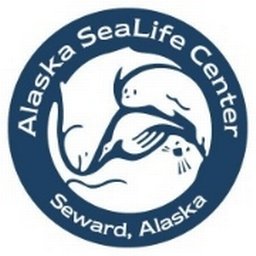
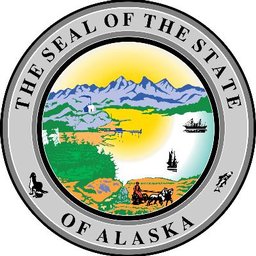
Similar Jobs

September 7, 2024
US Bureau of Reclamation
Supervisory Human Resources Specialist
Billings
FULL TIME
View Details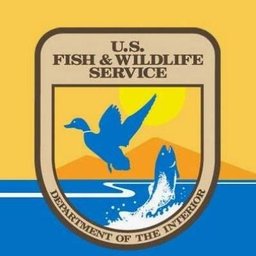
September 10, 2024
U.S. Fish and Wildlife Service
Supervisory Biologist
Salt Lake City
FULL TIME & PART TIME
View Details
September 10, 2024
Berkeley County Schools
Supervisory Special Education Aide (ISS)
Martinsburg
FULL TIME
View Details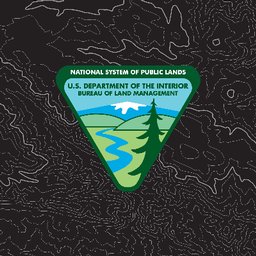
September 10, 2024
US Bureau of Land Management
Supervisory Wildland Firefighter (IHC Superintendent/Veteran Hand Crew Superintendent) - DHA
Fairbanks
View DetailsSeptember 10, 2024
US Defense Finance and Accounting Service
SUPERVISORY ACCOUNTING TECHNICIAN
Limestone
FULL TIME
View DetailsSeptember 10, 2024
US Administration for Children and Families
Supervisory Interagency Outreach and Response Program Management Specialist
Salt Lake City
FULL TIME
View DetailsNew Jobs from This Company

September 13, 2024
US National Park Service
Wildlife Biologist
Grand Canyon National Park
FULL TIME & OTHER & PART TIME
View Details

September 12, 2024
US National Park Service
Museum Technician (General)
Nicholasville
OTHER
View Details
September 12, 2024
US National Park Service
Biological Science Technician (Plants)
Stanton
FULL TIME & PART TIME
View Details
September 10, 2024
US National Park Service
Maintenance Worker Supervisor
Shonto
PART TIME
View Details